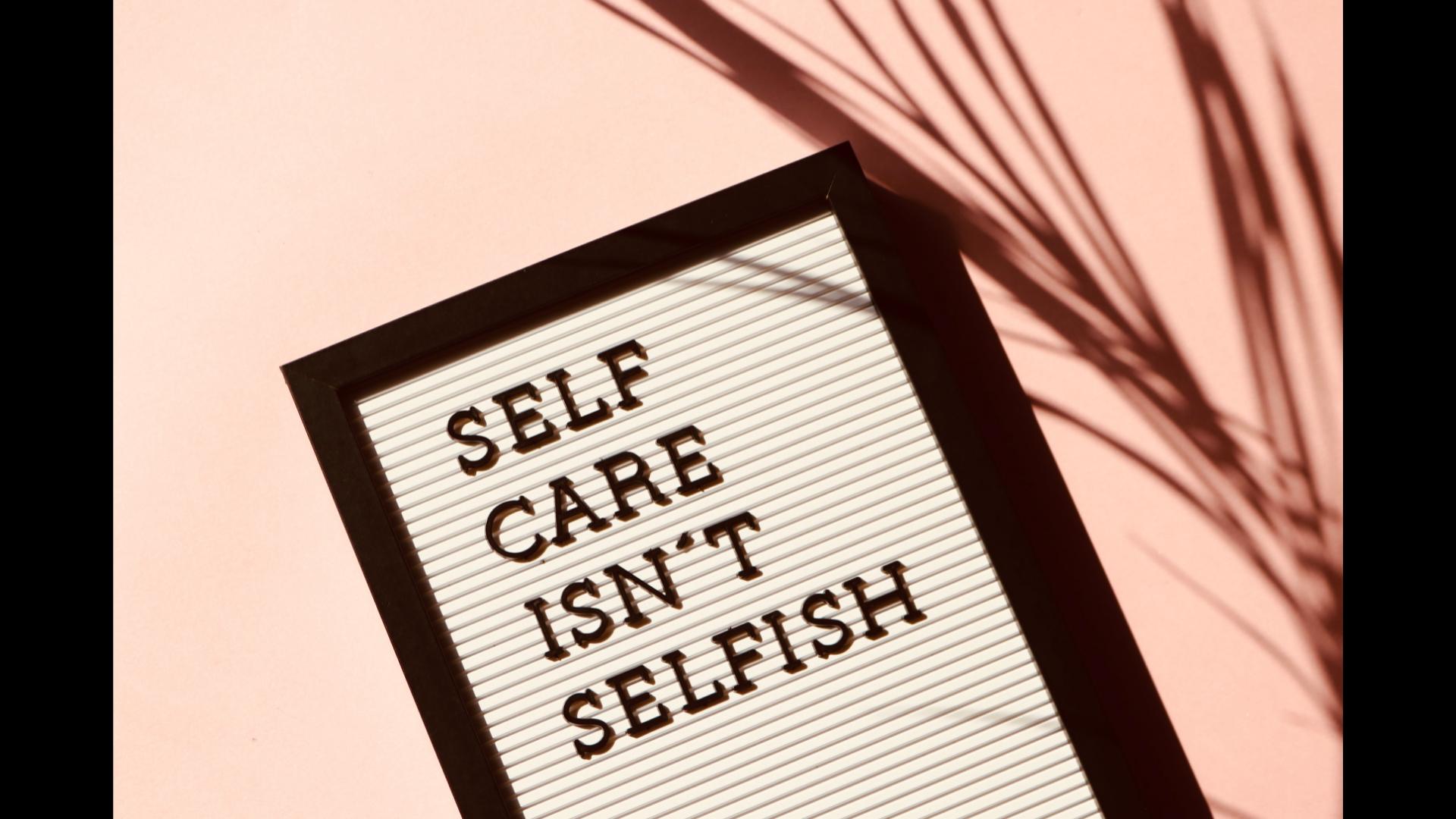
The term “self care” may conjure up images of bubble baths and spa days, cucumber slices on eyes included. Often, we think of self care as a luxury, something to be done as a treat or reward. And, although it is nice to indulge sometimes, practicing self care is more than that. It requires that we make consistent, daily physical, emotional and spiritual effort.
Physical Self Care
Physical self care means taking steps to ensure the health of our body. This includes proactive measure to avoid illness. It also means seeking appropriate medical treatment for health concerns.
Hygiene
Dental hygiene. Brush teeth twice per day for at least two minutes. Floss once per day. Attend regular dental check-ups. This helps prevent cavities and gum disease.
Medical hygiene. Seek medical treatment when necessary. Get regular cancer screenings and check-ups. Take prescription medication(s).
Shower hygiene. How often people shower varies by preference. However, showering with soap helps remove dead skin cells and bacteria from the body. This unclogs pores and helps prevent skin issues. This includes external genitals. Don’t use soap inside the vagina. It can lead to an imbalance of healthy bacteria and cause problems.
Washing our hair to remove oil and products is also important. Again, this will vary depending on hair texture, oiliness, and choice.
Hand hygiene (incl. bathroom and nail hygiene). Hand hygiene helps prevent germ spread. Wet the hands, add soap and scrub for 20 seconds. This includes between the fingers, and back of the hands. Airdry, or dry with a clean towel. Wash hands:
- After using the bathroom
- Before handling food or eating
- After cleaning or handling garbage
- After touching animals
- For people who menstruate, before and after changing menstrual products
- After treating wounds
We should also trim our nails, as bacteria can get trapped underneath. For those who prefer long nails, a nail brush can be used to scrub away dirt.
Exercise, Nutrition and Sleep
Perform 30 minutes of moderate exercise daily, minimum. Select activities that raise heart rate and work the entire body. Most importantly, select ones that are enjoyable.
As for diet, try to get enough fruits/vegetables, whole grains, and protein. Limit sugar and junk food. Healthy food is fuel. It gives us the vitamins, minerals, and protein to maintain strong bodies.
Sleep is also important for self care. Getting seven to nine hours of sleep helps us function properly. Without it, our concentration and thinking abilities may suffer.
Emotional and Mental Self Care
Emotional self care means tending to our emotional needs. It also means doing things important to us, so we feel connected to our true self. This allows us to build agency (the ability to make our own choices) and self-confidence. Ex:
- Engage in hobbies
- Set and work towards goals
- Socialize and maintain healthy relationships
- Experience touch (massage, hugs, etc.)
- Relax
Mental self-care means processing our thoughts and feelings in a healthy way. Ex:
- Talk to trusted people about our feelings
- Practice kind self-talk
- Seek professional help, if needed
- Manage stress
- Practice gratitude
Spiritual Self Care
We don’t have to be religious to be spiritual (but religion is one spiritual path). Spirituality is simply anything that helps us find a sense of meaning, and connection to the world. Ex:
- Meditate and be mindful
- Pray
- Connect with community
- Read spiritual or religious works
- Connect with nature
- Seek peace and happiness
How to Create a Self Care Plan
- Determine Needs
It’s good to identify self care areas in our lives that need strengthening. We may have a fulfilling spiritual life, but lack emotional self care, etc. We should think about what we value and need daily.
- Evaluate Current Self Care Methods and Alternatives
Once we figure out our needs, we should identify how we currently try to meet them. Think about what’s working, and what’s not. For areas that are lacking, we can brainstorm new, enjoyable methods to test out.
It’s normal to face barrier to self care. Ex., we may feel unmotivated to exercise. When roadblocks arise, we should find simple solutions. For example, we may feel more motivated to exercise with others. So, we could join a class where others can hold us accountable.
- Make a Plan
It’s useful to include self care throughout our day, on a regular schedule. This helps builds healthy habits. We can decide when we’ll exercise, connect with loved ones, and tend to mental health. A planner is great for this purpose. We can even set alarms to remind us of our self-care commitments. Self care can seem tiresome, maybe even boring. If we aren’t used to doing it, it can be overwhelming. But, when we seek to fulfil our needs, we can achieve a healthier, happier state of being.
References
https://www.medicalnewstoday.com/articles/324682#showering-in-different-seasons
https://www.medicalnewstoday.com/articles/personal-hygiene#children
https://www.healthline.com/health/personal-hygiene#for-kids
https://www.sleepfoundation.org/how-sleep-works/why-do-we-need-sleep
https://psychcentral.com/blog/what-self-care-is-and-what-it-isnt?c=1069369870285



